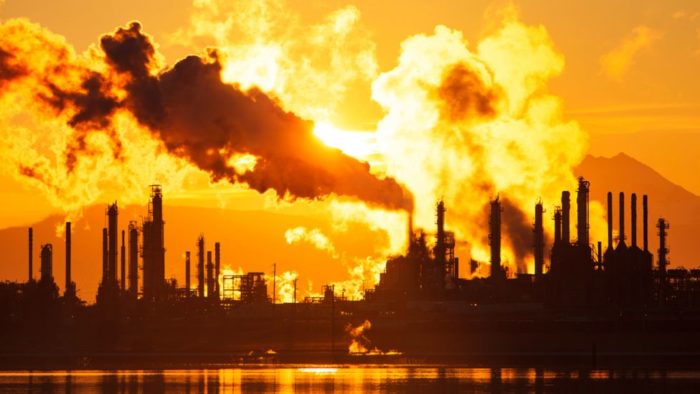Feb 15 2024
Using AI and Social Media to Measure Climate Change Denial
A recent study finds that 14.8% of Americans do not believe in global climate change. This number is roughly in line with what recent survey have found, such as this 2024 Yale study which put the figure at 16%. In 2009, by comparison, the figure was at 33% (although this was a peak – the 2008 result was 21%). The numbers are also encouraging when we ask about possible solutions, with 67% of Americans saying that we should prioritize development of green energy and should take steps to become carbon neutral by 2050. The good news is that we now have a solid majority of Americans who accept the consensus on climate change and broadly support measures to reduce our carbon footprint.
finds that 14.8% of Americans do not believe in global climate change. This number is roughly in line with what recent survey have found, such as this 2024 Yale study which put the figure at 16%. In 2009, by comparison, the figure was at 33% (although this was a peak – the 2008 result was 21%). The numbers are also encouraging when we ask about possible solutions, with 67% of Americans saying that we should prioritize development of green energy and should take steps to become carbon neutral by 2050. The good news is that we now have a solid majority of Americans who accept the consensus on climate change and broadly support measures to reduce our carbon footprint.
But there is another layer to this study I first mentioned – the methods used in deriving the numbers. It was not a survey. It used artificial intelligence to analyze posts on X (Twitter) and their networks. The fact that the results aligns fairly well to more tried and true methods, like surveys, is somewhat validating of the methods. Of course surveys can be variable as well, depending on exactly how questions are asked and how populations are targeted. But multiple well designed survey by experienced institutions, like Pew, can create an accurate picture of public attitudes.
The advantage of analyzing social media is that it can more easily provide vast amounts of data. The authors report:
We used a Deep Learning text recognition model to classify 7.4 million geocoded tweets containing keywords related to climate change. Posted by 1.3 million unique users in the U.S., these tweets were collected between September 2017 and May 2019.
That’s a lot of data. As is almost always the case, however, there is a price to pay for using methods which capture such vast amounts of data – that data is not strictly controlled. It’s observational. It is a self-selective group – people who post on X. It therefore may not be representative of the general population. Because the results broadly agree with more traditional survey methods, however, this does suggest that any such selective effects balanced out. Also, they adjusted for and skew toward certain demographic groups – so if younger people were overrepresented in the sample they adjusted for that.
The results also showed some more detail. Because the posts were geocoded the analysis can look at regional difference. They found broadly that acceptance of global warming science was highest on the coasts, and lower in the midwest and south. There were also significant county level differences. They found:
Political affiliation has the strongest correlation, followed by level of education, COVID-19 vaccination rates, carbon intensity of the regional economy, and income.
Climate change denial, again in line with prior data, correlated strongly with identifying as a Republican. That was the dominant factor. It’s likely that other factors, like COVID-19 vaccination rates, also derive from political affiliation. But it does suggest that when one rejects scientific consensus and the opinion of experts on climate change, it makes it more likely to do so on other issues.
Because they did network analysis they were also able to analyze who is talking to whom, and who the big influencers were. The found, again unsurprising, that there are networks of users who accept climate change and networks that reject climate change, with very little communication between the networks. This shows that the echo-chamber effect on social media is real, at least on this issue. This is a disturbing finding, perhaps the most disturbing of this study (even if we already knew this).
It reflects in data what many of us feel – that social media and the internet has transformed our society from one where there is a basic level of shared culture and facts to one in which different factions are siloed in different realities. There have always been different subcultures, with vastly different ideologies and life experiences. But the news was the news, perhaps with different spin and emphasis. Now it is possible for people to exist in completely different and relatively isolated information ecosystems. We don’t just have different priorities and perspectives -we live in different realities.
The study also identified individual influencers who were responsible for many of the climate change denial posts. Number one among them was Trump, followed by conservative media outlets. Trump is, of course, a polarizing figure, a poster child for the echo-chamber social media phenomenon. For many he represents either salvation or the destruction of American democracy.
On the bright side, it does seem there is still the possibility of movement in the middle. The middle may have shrunk, but still holds some sway in American politics, and there does seem to be a number of people who can be persuaded by facts and reason. We have moved the needle on many scientific issues, and attitudes have improved on topics such as climate change, GMOs, and nuclear power. The next challenge is fixing our dysfunctional political system so we can translate solid public majorities into tangible action.






